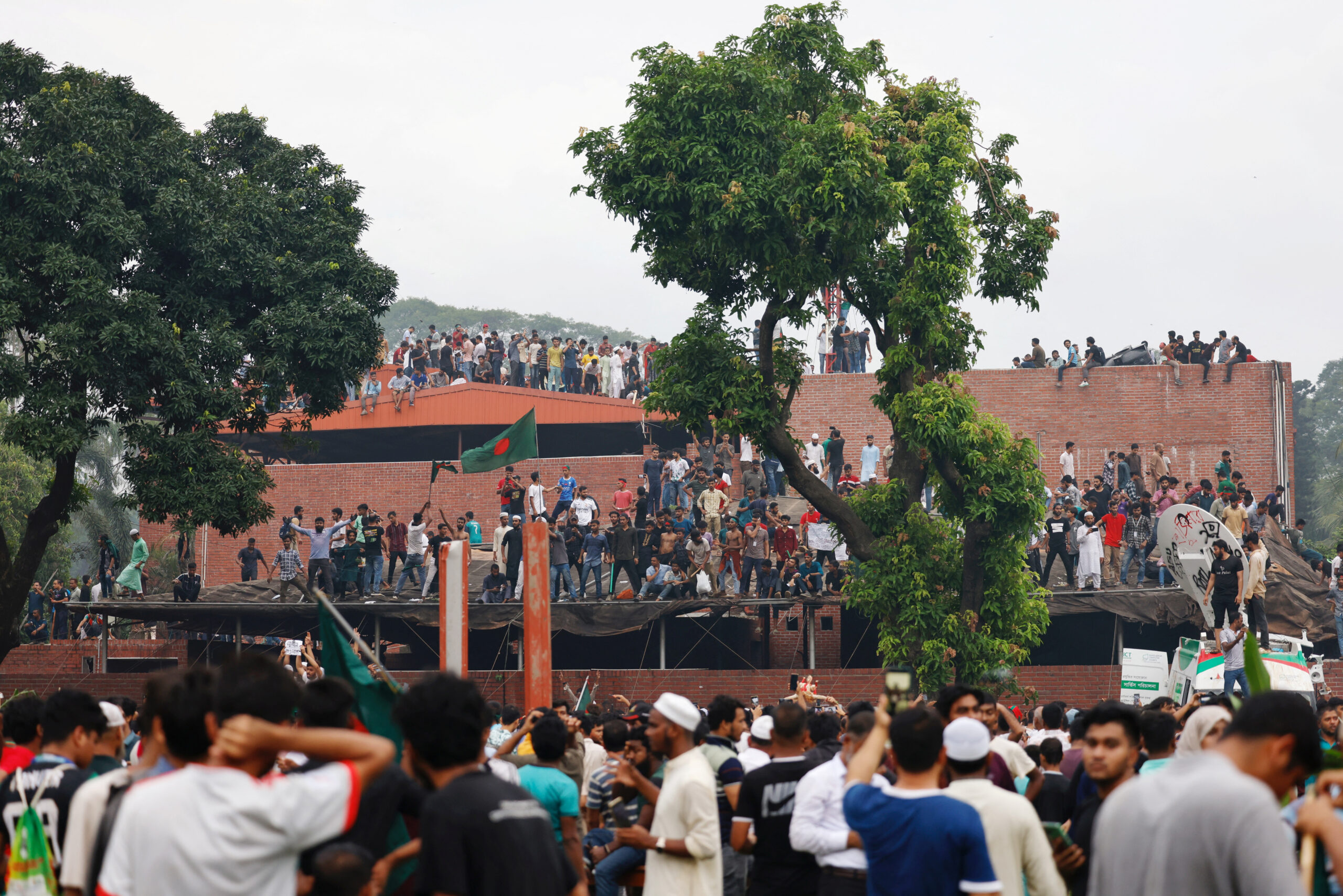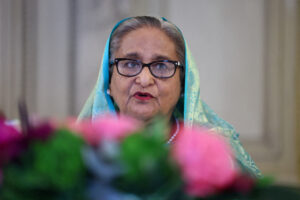- Wednesday, October 30, 2024
The mass protests triggered by quotas in government jobs soon morphed into an anti-government movement

By: Shajil Kumar
The 15-year-old Sheikh Hasina regime in Bangladesh unravelled on August 5, after the country went through a month-long turmoil over reservation in government jobs.
The 76-year-old prime minister resigned on Monday and left for India, with latest reports indicating that she may be heading for London.
The main issue at stake was the 30 per cent reservations in civil services jobs for the families of veterans who fought the 1971 liberation war that freed Bangladesh from Pakistan’s yoke.
Background
This quota was initially introduced in 1972 by Hasina’s father and former prime minister Sheikh Mujibur Rahman.
However, in October 2018, Hasina agreed to abolish all reservations amid large-scale protests by students.

In June this year, the High Court nullified that decision and reinstated the quotas after petitions were filed by relatives of 1971 veterans.
This triggered the recent protests, with students demanding a total merit-based recruitment in government jobs.
The protests escalated dramatically when student activists at Dhaka University clashed violently with police and pro-government counter-protesters.
Though the Supreme Court in Bangladesh subsequently rolled back the controversial quota system on July 21, it failed to quell the anger against Hasina government.
The mass protests had by then morphed into a significant anti-government movement, demanding the resignation of Sheikh Hasina.
Her initial attempt to dub the protesters as terrorists further vitiated the situation.
The protests attracted support from diverse sections of society, including film stars, musicians, and even garment manufacturers.
Rap songs and social media campaigns calling for Hasina’s resignation gained popularity.
The unrest spread to almost all parts of Bangladesh.
Economic factors
Bangladesh is currently grappling with high youth unemployment, as nearly 32 million young people are out of work or education in a population of 170 million.
The country had stagnant job growth in the private sector, and this has made government jobs, with their regular wage hikes and security, very attractive.
The economy, which was once booming on the back of garments sector, has been stagnating for some time.
The rising energy costs following the war in Ukraine interrupted its post-pandemic recovery, as it dipped into its depleting forex reserves to pay.
Inflation hovers around 10 per cent per annum and dollar reserves are shrinking. The country is dependent on IMF bailout package.

Anger over quotas
Against this backdrop, the re-introduction of the quota system, further alienated the youth, leading to widespread protests.
Critics claim it unfairly benefits Awami League supporters and limits opportunities for other qualified candidates.
The recent violence highlights the growing dissatisfaction against the current regime and demands for change among the Bangladeshi populace.
Hasina had won her fourth consecutive term in January, but the main opposition Bangladesh Nationalist Party (BNP) had stayed away from contesting.
They accused the Awami League of trying to legitimise sham elections, which was held after a large-scale crackdown on opposition activists.
Hasina has been facing accusations of entrenching power through state institutions and suppressing dissent.
Tipping point
The tipping point was the widespread violence during the weekend that left over 100 dead as the police fired tear gas and rubber bullets to disperse tens of thousands of protesters across the country.
Though the government had imposed a curfew on Monday, the defiant protesters organised a ‘Long march to Dhaka’.
Soon thousands of protesters arrived near Sheikh Hasina’s official residence in Dhaka, threatening to storm the building. Hasina resigned and soon fled in a military aircraft.
The protesters vandalised her house, smashed a statue of her father Mujibur Rahman, and set her party’s offices on fire as they celebrated her departure.
To prevent the situation from getting out of hand, army chief General Waqar-uz-Zaman announced in a televised address that Hasina has resigned and an interim government will be taking over.
“I’m taking all responsibility (of the country). Please cooperate,” Zaman added, signalling the end of Hasina’s reign.
The Army chief said he had met political leaders and told them the Army would take over responsibility for law and order.